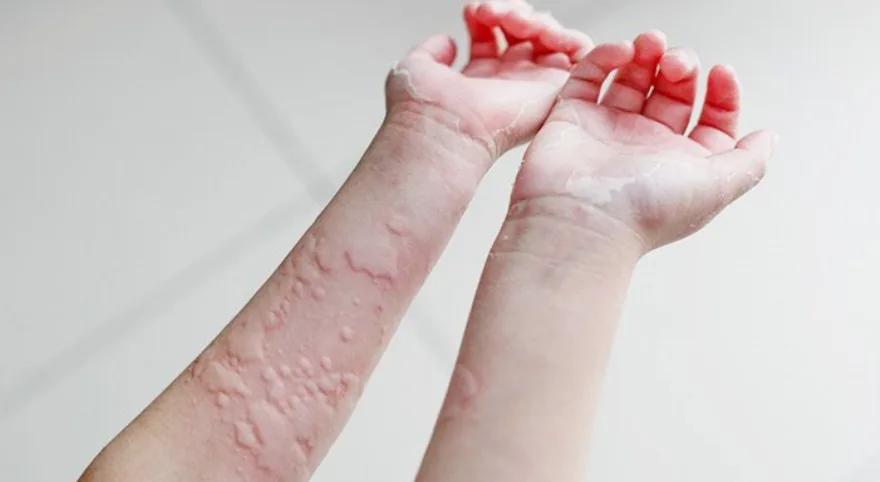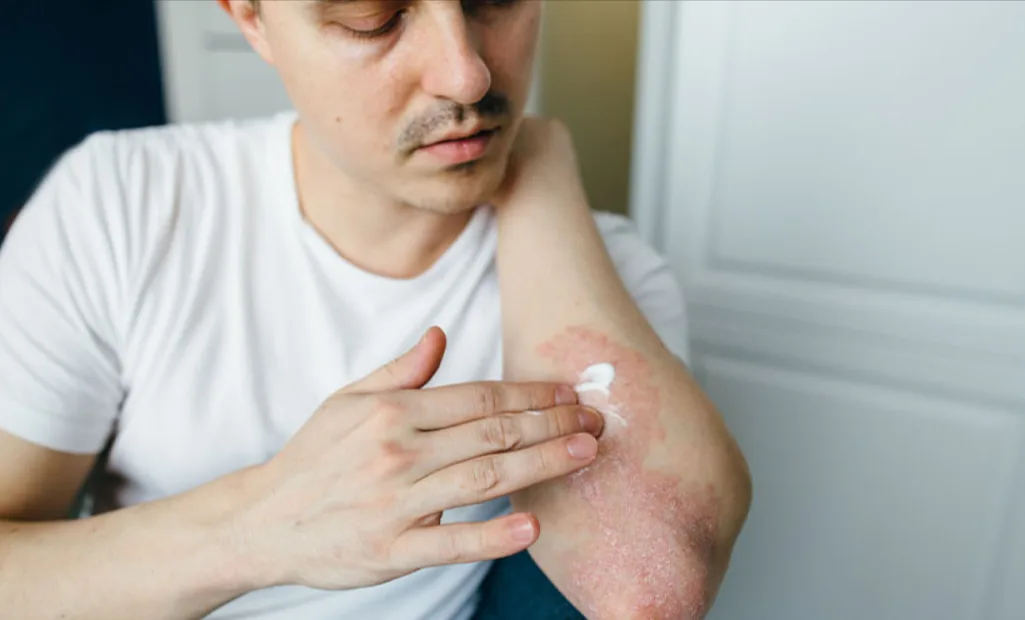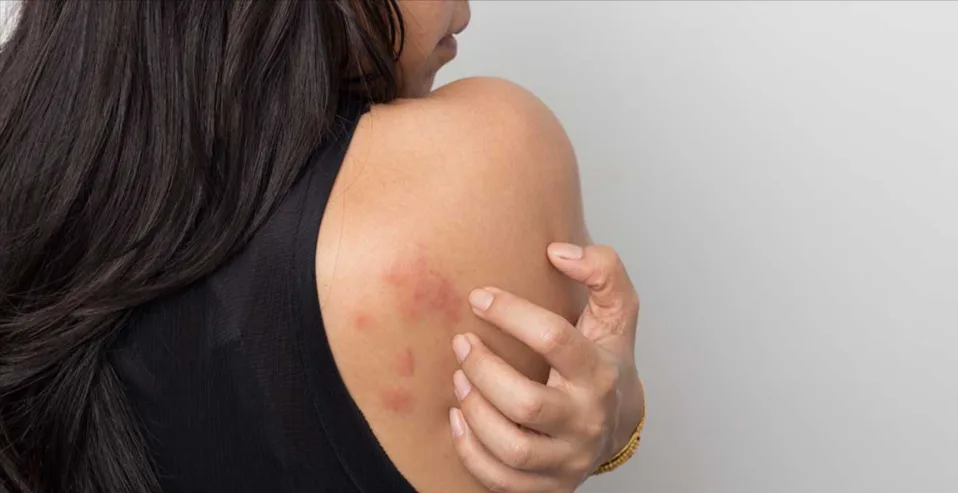Hives, also known as urticaria, are red, itchy welts that can appear anywhere on the skin.
They often come on suddenly and can vary in size and shape. While hives are typically harmless and temporary, they can be uncomfortable and sometimes indicative of an underlying condition.
This blog will explore common causes of hives, treatment options, and when to seek professional care.
What Are Hives?
Hives are a skin reaction that occurs when the body releases histamine, a chemical involved in allergic responses.
This histamine release causes fluid to accumulate under the skin, leading to swelling, redness, and itching. Hives can appear in clusters and may disappear within a few hours, only to reappear elsewhere on the body.
Common Causes of Hives
Hives can be triggered by a variety of factors, including:

1. Allergies
-
<>Food Allergies : Common culprits include nuts, shellfish, eggs, and dairy products.
- Medication Allergies: Antibiotics, pain relievers like aspirin, and certain vaccines can cause hives.
- Insect Bites or Stings: Bee stings, mosquito bites, or other insect interactions may trigger a reaction.
2. Environmental Triggers
- Pollen or Pet Dander: Seasonal allergens can lead to hives in sensitive individuals.
- Temperature Changes: Cold-induced hives or heat-related reactions can occur in extreme conditions.
- Sunlight: Some people experience hives due to direct exposure to the sun, a condition known as solar urticaria.
3. Infections
Viral or bacterial infections, including the common cold, strep throat, or urinary tract infections, can sometimes cause hives as part of the body’s immune response.
4. Stress
Emotional or physical stress can exacerbate hives in individuals who are already prone to them. This type of urticaria is often referred to as stress hives.
5. Chronic Conditions
Chronic hives, which last for more than six weeks, may be linked to autoimmune disorders like lupus or thyroid disease. Identifying and managing the underlying condition is essential for long-term relief.
Symptoms of Hives
The key symptoms of hives include:
- Raised, red, or skin-colored welts
- Intense itching
- Welts that change size or shape
- Swelling, particularly around the eyes or lips (angioedema)
- Symptoms that come and go quickly, often within 24 hours
In rare cases, hives may be accompanied by difficulty breathing or swallowing, which requires immediate medical attention.
How to Treat Hives
The treatment for hives depends on the severity of symptoms and their underlying cause. Here are some common approaches:

1. Antihistamines
Over-the-counter antihistamines, such as loratadine or cetirizine, can help block histamine release and relieve itching and swelling. For severe cases, a doctor may recommend prescription-strength antihistamines.
2. Avoiding Triggers
Identifying and avoiding the trigger is crucial. For instance, if certain foods or medications cause hives, eliminating them from your routine can prevent future outbreaks.
3. Topical Treatments
Calamine lotion, hydrocortisone cream, or cool compresses can provide immediate relief from itching and irritation.
4. Epinephrine (for Severe Allergic Reactions)
In cases of severe hives accompanied by anaphylaxis, an epinephrine injection is required. If you have a history of severe allergies, carrying an epinephrine auto-injector (EpiPen) is essential.
5. Treating Underlying Conditions
If chronic hives are linked to an autoimmune disorder or another health issue, treating that condition is key to managing symptoms.
Home Remedies for Mild Hives
For mild cases, the following home remedies may help:
- Apply a Cold Compress: Wrap ice in a clean cloth and apply it to the affected area to reduce swelling and itching.
- Take an Oatmeal Bath: Colloidal oatmeal can soothe the skin and alleviate irritation.
- Wear Loose Clothing: Tight clothing can irritate hives and worsen symptoms.
- Stay Hydrated: Drinking water helps flush out toxins and keep your skin healthy.
- Reduce Stress: Practice relaxation techniques like yoga or meditation to manage stress-related hives.
When to Seek Urgent Medical Attention
While most cases of hives are manageable at home, you should see an urgent care provider if:
- Symptoms Persist:Hives lasting longer than a week or recurring frequently may indicate an underlying condition.
- Breathing Difficulties: If you experience wheezing, shortness of breath, or swelling in the throat, seek immediate medical care.
- Severe Discomfort: If hives cause intense itching or pain that interferes with daily activities, professional treatment is necessary.
- Signs of Infection: If the skin becomes warm, red, or oozes pus, it could indicate a secondary infection.
Visit UrgiClinic Urgent Care for Hives Treatment
If you’re experiencing hives and need relief, UrgiClinic Urgent Care is here to help. Our experienced healthcare professionals can diagnose the cause of your hives and provide effective treatment to alleviate your symptoms.
Don’t let hives disrupt your life. Walk in with us at UrgiClinic Urgent Care for fast, compassionate care. Walk in today, and let us help you find lasting relief from hives and their underlying causes.




